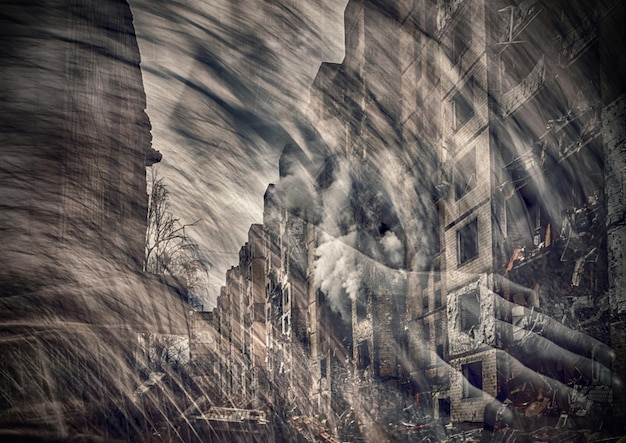True Crime Inspiration: How Real Events Fuel International Crime Dramas

True crime inspiration profoundly shapes international crime dramas, influencing narratives, character development, and the overall themes explored in these captivating and often disturbing television series and movies.
The allure of the unknown, combined with the morbid curiosity surrounding real-life events, makes true crime inspiration a powerful force in shaping international crime dramas. These shows often delve into the darkest corners of human nature, drawing audiences in with compelling narratives based on actual cases.
The Global Appeal of True Crime
True crime inspiration appeals to a broad audience across the globe. This enduring fascination inspires captivating crime dramas that resonate deeply. The genre’s universal themes of justice, morality, and the human condition fuel its global popularity.
Why are viewers so drawn to these stories? Is it the thrill of the chase, the puzzle of solving the mystery, or the psychological dissection of criminal minds?
Psychological Factors Behind the Fascination
Understanding the psychological factors can help explain why true crime is so popular. It is about the human condition, our fears and insecurities.
The Role of Empathy and Identification
The ability to empathize with victims and even, strangely, to identify certain aspects of the perpetrator may also drive the audience’s attention.
- Exploring our own morality makes true crime shows appeal to a wider audience.
- The idea that justice prevails is also a comfort that influences the interest in the stories.
- The fact that those stories happened in real life adds another exciting layer.
International crime dramas, fueled by true crime inspiration, continue to evolve, reflecting societal trends and cultural nuances. The psychological appeal of true crime will likely endure, ensuring its place in the hearts and minds of audiences worldwide.
The Art of Adaptation: From Headlines to Screen
Turning real crime into screen entertainment is an art form. True crime stories involve a meticulous process of adaptation. Respecting the source material is equally important.
Writers and producers are faced with the challenge of shaping true events into a watchable narrative, all while facing multiple ethical considerations.

Accuracy vs. Dramatic License
The balance between accuracy and dramatic license is a tightrope walk. Some shows prioritize factual accuracy, while others take creative liberties for entertainment value.
Ethical Considerations in True Crime Dramatizations
Ethical considerations are paramount when portraying real-life tragedies. Victims and their families will likely be affected by the series production.
- Consulting with experts ensures authenticity in crime dramas.
- Respect for the victims and their families is of utmost importance.
- The shows’ writers need to balance entertainment value and accurate storytelling.
The art of adapting true crime for the screen involves many compromises and risks. Creative choices affect how the stories are received and their societal impact.
Scandinavian Noir: A Dark Reflection of Reality
Scandinavian noir is a genre that thrives on true crime inspiration. It often explores the darker aspects of Nordic society. Social issues and the bleak landscapes fuel the show’s storylines.
The appeal of Scandinavian noir lies in its atmospheric storytelling, complex characters, and its willingness to confront uncomfortable truths.
Notable Examples of Scandinavian Noir Inspired by True Events
Examples of Scandinavian noir include “The Killing,” “The Bridge,” and “Wallander.” All of them depict very different aspects of crime reality.
Themes and Characteristics of the Genre
Scandinavia is always facing an ideological dilemma. The contrast between crime’s darkness and the society’s pristine appearance helps to highlight the plot.
Scandinavian noir offers a chilling reflection of reality. Themes that range from the darkest human nature to how societies face these crimes.
Latin American Crime Dramas: Stories of Survival and Corruption
Latin American crime dramas are known for its raw authenticity. This genre addresses social issues, political corruption, and drug-related violence.
These dramas offer a unique perspective on crime. They reflect the complex realities of the region.

Real-Life Cartel Wars and Their Dramatic Portrayals
The depiction of cartel wars is a common theme in Latin American crime dramas. The stories are very often inspired by true events and the brutal realities lived in the region.
Social and Political Commentary Through Crime Narratives
Crime narratives often serve as a vehicle for social and political commentary. Issues such as police corruption, social inequality, and government corruption are widely discussed.
- The shows also depict the struggle for survival in a region marked by poverty and violence.
- The stories shed light on the resilience and determination of the people in the face of adversity.
- The shows offer a gritty and unflinching look at the reality of crime in Latin America.
Latin American crime dramas offer very powerful stories of crime and corruption. They expose harsh realities with raw authenticity. Characters also show a resilience and ability to overcome adversity.
British Crime Dramas: Delving into Psychological Depth
British crime dramas are known for their focus on psychological depth. Complex characters and intricate plots make the series very thrilling.
These series stand out due to their sophisticated writing, realistic portrayal of police procedure, and well-developed characters.
The Influence of Real-Life Criminal Cases on British Television
British crime dramas often draw inspiration from real-life criminal cases. The series often explore the psychological impact of crime on individuals and communities. Some examples include “Sherlock”, “Luther” and “Line of Duty.”
Character-Driven Narratives and Their Psychological Impact
Character-driven narratives are a key element of British crime dramas. The stories offer deep insights into the human psyche. The series often explore the minds of both the investigators and the perpetrators.
British crime dramas provide a very compelling form of entertainment. They offer a captivating blend of suspense, realism, and psychological exploration. Themes of morality, justice, and the human condition also prevail.
The Future of True Crime Dramas
True crime dramas are expected to continue evolving in the future. Technology, societal changes, and audience preferences shape the genre.
As the genre evolves, it is essential to maintain ethical standards during production. Sensationalism and exploitation of the victims should be avoided.
Technological Advancements and Their Impact on Storytelling
Stories now count on technological upgrades as a key plot element. DNA analysis, facial recognition software, and digital forensics are some examples.
Ethical Considerations and Responsible Storytelling in the Genre
Ethical considerations are important. The focus should always be on accurately representing the events and respecting the individuals affected by the crime.
- Maintaining high ethical standards is essential for the future of true crime dramas.
- The industry must focus on authenticity, respect and sensitivity when telling true crime stories.
- The future of true crime dramas will involve balancing technological innovation with ethical responsibility.
True crime dramas are very likely to be a very popular show for years to come. New technologies, ethical storytelling, and focus on the victim’s voice will elevate the genre.
| Key Aspect | Brief Description |
|---|---|
| 🎬 Adaptation Art | Transforming real headlines into engaging screenplays, balancing accuracy with drama ethically. |
| 🌍 Global Appeal | Universal themes of justice and morality captivate worldwide audiences with real crime stories. |
| 📺 British Depth | Character-driven British dramas explore deep psychological impacts using intricate, realistic plots. |
| ⚖️ Ethical Future | Future dramas blend tech with ethics, focusing on responsible storytelling and victim respect. |
Frequently Asked Questions (FAQ)
▼
True crime dramas captivate audiences due to their exploration of real-life mysteries and psychological depths. These shows offer a thrilling blend of suspense and human drama that fascinates viewers.
▼
Writers carefully balance accuracy with dramatic license when adapting true crime events. They research thoroughly, consult experts, and often dramatize elements to maintain viewer engagement.
▼
Scandinavian noir is unique due to its atmospheric storytelling. Series often explore the darker aspects of Nordic society by confronting uncomfortable secrets that often result in very gritty series.
▼
Latin American crime dramas reflect local realities by addressing social issues and political corruption. These dramas offer a raw perspective on drug-related violence and the struggle for survival.
▼
True crime dramas face challenges like responsibly portray sensitive events without sensationalism. It is important to protect victims’ privacy and accurately represent events.
Conclusion
True crime dramas continue to captivate audiences worldwide, showing how real-life crime events fuel storytelling and exploration. As the genre evolves, balancing technological advancements with ethical standards remains essential to the genre.





